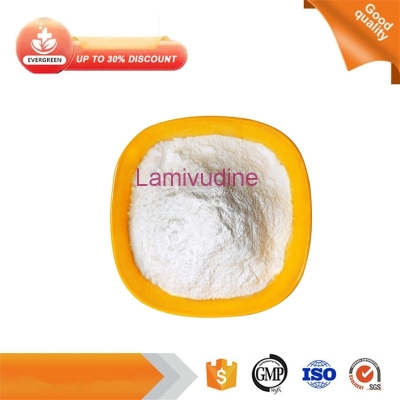-
Categories
-
Pharmaceutical Intermediates
-
Active Pharmaceutical Ingredients
-
Food Additives
- Industrial Coatings
- Agrochemicals
- Dyes and Pigments
- Surfactant
- Flavors and Fragrances
- Chemical Reagents
- Catalyst and Auxiliary
- Natural Products
- Inorganic Chemistry
-
Organic Chemistry
-
Biochemical Engineering
- Analytical Chemistry
- Cosmetic Ingredient
-
Pharmaceutical Intermediates
Promotion
ECHEMI Mall
Wholesale
Weekly Price
Exhibition
News
-
Trade Service
This article is the original of Translational Medicine Network, please indicate the source for reprinting
Written by Sophia
Summary: Acute inflammatory response requires appropriate regulation to promote the clearance of pathogens and prevent the risk of tumorigenesis, but the relevant regulatory mechanisms have not been fully elucidated
.
Recently, Professor Tang Songqing and Professor Zhu Haizhen of Hunan University and Professor Wang Jianli of Zhejiang University published a paper in Nature Communications "RasGRP1 promotes the acute inflammatory response and restricts inflammation-associated cancer cell growth", which showed RasGRP1 May be an important bifunctional regulator of acute inflammatory response and tumor growth
.
#Sec2
Research background
01
IL-6 is an important inflammatory cytokine that is expressed during infection and cancer and has been identified as an important target for clinical intervention, with IL-6
produced by almost all stromal and immune cells.
IL-6 expression is relatively low in resting innate immune cells but rapidly elevated
in innate immune cells activated by microbial components such as lipopolysaccharide (LPS) 7.
However, let-7 expression is only slightly downregulated
in activated innate immune cells.
Thus, the rapid inhibitory effect of let-7 on IL-6 in activated innate immune cells, especially during acute inflammatory responses, may be a potential drug target for inflammatory diseases
.
Ras guanine nucleotide releasing protein 1 (RasGRP1), a member of the RasGRP family, is a guanine nucleotide exchanger
associated with Ras activation.
Previous studies have shown that RasGRP1 is essential for mediating Ras/Erk activation, thereby promoting positive and negative selection
of T cells.
Recently, there has been growing evidence linking RasGRP1 to many human diseases, particularly inflammatory diseases
such as systemic lupus erythematosus, type 2 diabetes, and cancer.
Although the function of RasGRP1 has been extensively studied in T cells, its role in innate immune cells, especially macrophages, remains unclear
.
Elucidating the function of RasGRP1 in innate immunity will provide further insight into the pathophysiology and underlying mechanisms
of inflammatory diseases.
Research progress
02
To confirm that let-7a inhibits IL-6 expression, the researchers co-transfected IL6 or Tnf expression plasmids and synthetic let-7a mimics and/or let-7a inhibitors into HEK293 cells
.
The results showed that let-7a mimics inhibited the expression of IL-6 and TNF by binding to Il6 3' UTR, and this effect was reversed
by let-7a inhibitors.
To investigate whether let-7a is a key mediator in inhibiting IL-6 expression in macrophages, researchers overexpress or silence let-7a in macrophages by transfecting cells with synthetic let-7a mimics or let-7a
inhibitors.
Quantitative RT-PCR analysis showed negligible changes in Il6 mRNA levels in macrophages stimulated with LPS transfected with let-7a mimics or let-7a inhibitors
.
After stimulation of cells with LPS, IL-6 protein levels in let-7a mimic-transfected cells were reduced compared to control cells, while IL-6 protein levels were elevated
in let-7a inhibitor-transfected cells.
To explore the mechanism by which let-7a regulates IL-6 production, luciferase reporter plasmids containing wild-type Il6 were constructed with a 3' UTR or mutant Il6 3' UTR
.
Luciferase reporter system analysis showed that let-7a mimics disrupted the activity of the Il6 3' UTR reporter, but not the luciferase activity
of the mutant Il6 3' UTR reporter.
These results suggest that IL-6 expression in macrophages is inhibited
by let-7a through translation rather than by mRNA degradation.
The expression of RasGRP1 and IL-6 is regulated by let-7a
Research significance
03
In this study, the researchers found that RasGRP1 plays an important role
in regulating acute inflammatory responses and cancer.
Acute inflammatory responses are essential for effective clearance of pathogens, but need to be tightly regulated to prevent harmful side effects, such as the development
of tumors and autoimmune diseases.
Studies have shown that RasGRP1 is an important modulator that promotes the inflammatory response
by increasing IL-6 production and inhibiting the growth of hepatoma cells by inhibiting the activation of the EGFR-SOS1-Ras-AKT signaling pathway.
Under physiological conditions, especially during acute inflammatory responses, RasGRP1 is important
in regulating the inflammatory response and reducing the likelihood of inflammation-related cancer development.
Resources:
style="white-space: normal;box-sizing: border-box;">Note: This article is intended to introduce the progress of medical research and cannot be used as a reference
for treatment options.
If you need health guidance, please go to a regular hospital
.
Forum One
Tumor immunity "Pujiang Discussion" schedule
Forum II
Tumor immunity "Matsue traceability" schedule
Forum III
Oncology drug development and treatment schedule
Forum V
Oncology frontier "pinnacle theory" agenda
Forum VI
Breast Cancer Frontier and Clinical Translational Agenda
(Click above to view the detailed schedule)







